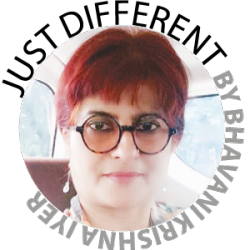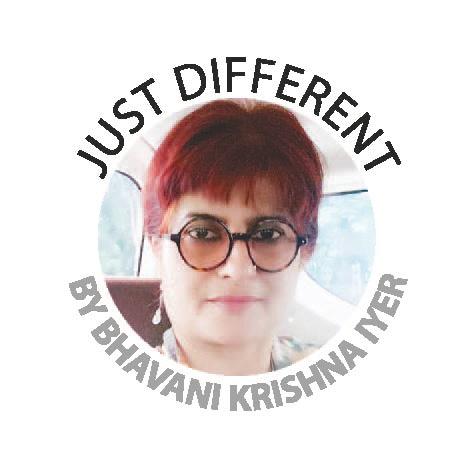WE were restricted to home for weeks and now we are gradually feeling the exuberance once again of getting connected with people, places and everything else that we took for granted.
During the six weeks of MCO, many of us would have had the invaluable opportunity to do things that we otherwise would not have done. Some of us might have picked up a skill or two and yet others might have learnt a new hobby or interest. The choices were unlimited and opportunities were in abundance.
On this platform, I would like to share lessons I learnt from a book that I started reading – Together: The Healing Power of Human Connection in a Sometimes Lonely World, written by a medical doctor, and now I am obsessing about finishing the book.
Published in March this year, just when the invisible killer was beginning its wanton attack on the world, when our lives were paused, just too soon, harshly.
Parties of all kinds had to be stopped, weddings and engagements were postponed, going to places of worship was not allowed, walking outdoors became a crime, going to the park was punishable and outdoor activities were seen as savage and selfish.
All at one go, our lives were reversed. It was like someone turned on the pause button and forgot to turn it off. “Stay home” became the chant driving our daily lives into frustration, bordering on insanity.
Panic ruled and social distancing became compulsory to avoid being infected. Treat everyone as a carrier and regard yourself as one too, was the advice.
Not only was the economy going into recession, socially too we were surrendering into one. Without human interaction, we had become socially crippled and soon may present ourselves as awkward too.
In the midst of it all, the book gave me an alternative to the presumed definition of human connection. If we don’t meet, how can we connect, if we don’t connect, how can we love? The answer lies in technology.
A salient point of the author is that even with physical distancing, social connection was still possible. Over the weeks, we have seen communities around the world capitalising on their creativity in enabling social connectedness in a myriad of ways
In Italy we saw residents who connected with each other through music from their balconies and in India the same was possible by clapping activity, motivated and popularised by the prime minister himself. Globally, performers were connecting with their audience via digital performance, stand-up comedians worked on their new scripts and presented rib-tickling shows from their homes as an interlude to our lives, which was wilting away.
Home videos became a popular trend and pastime for people with various talents and these amateur performers connected with people who they didn’t even know and created random fan groups.
Birthdays and anniversaries went on via face-time and other virtual platforms and applications. Students as young as five and six were connecting with their teachers online.
The pandemic is not the first and it may not be the last, and the need for social connection is even more important during such crises as it enhances mutual resilience.
The writer in his book has some very sound advice to maintain social connection in extraordinary times when physical togetherness is not possible.
One, spare time each day to connect with people you love and care about. With applications galore that we have, we can talk to people, hearing and seeing the person at the same time.
Second, stay focused when connecting with people. Forget about multi-tasking and do away with distractions. Give the person the gift of your full attention when speaking to people.
Third, embrace solitude with self. A person who is able to go within to do an audit on feelings and thoughts will easily connect with life in all its wholesomeness.
One who better understands himself or herself will be able to understand another better for greater connection.
Fourth, help and be helped. While giving and receiving bonds are created and nurtured effortlessly. In the worst of times, those who survive are those who reach out to others.
It is in vogue for self-help gurus to propagate rugged independence as the only picture of strength. Strong people admit and address vulnerabilities. They take whatever actions are necessary to thrive. Strong people give when they are able and receive when it’s their turn.
Meaningful human connection is both energy and nutrient to the emotional well-being of a person which leads to a healthy body and mind.
This basic need to form, grow and sustain relationships and to belong to a group, team or family is universal. Now more than ever, we all need regular human interactions, loyal relationships, dependable emotional support and a feeling of belonging, whoever we are, wherever we are.
Throughout the MCO I made time to speak to at least one person every day, family, friends or colleagues and during that exchange, it gave me great pleasure just chatting on various subjects. It does not need to be anything too serious or significant, just hearing someone cares to call makes a huge difference in another person’s life.
Comments: letters@thesundaily.com















